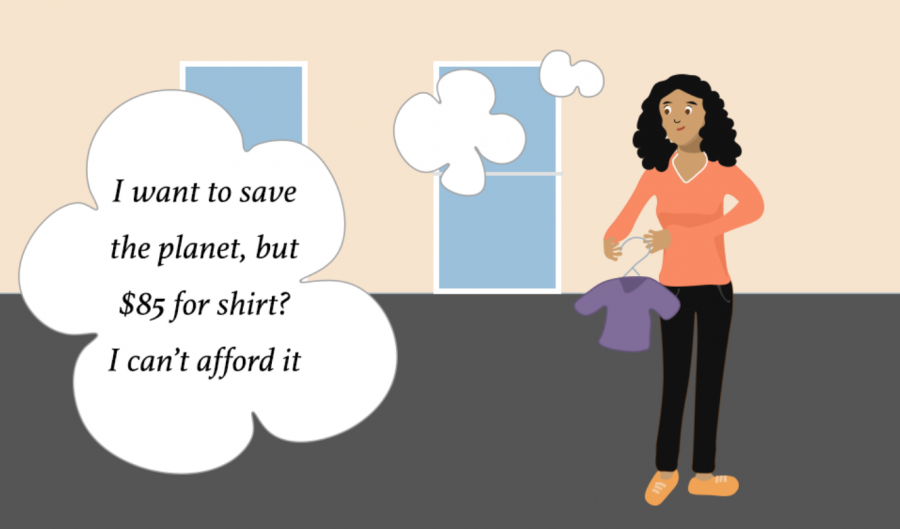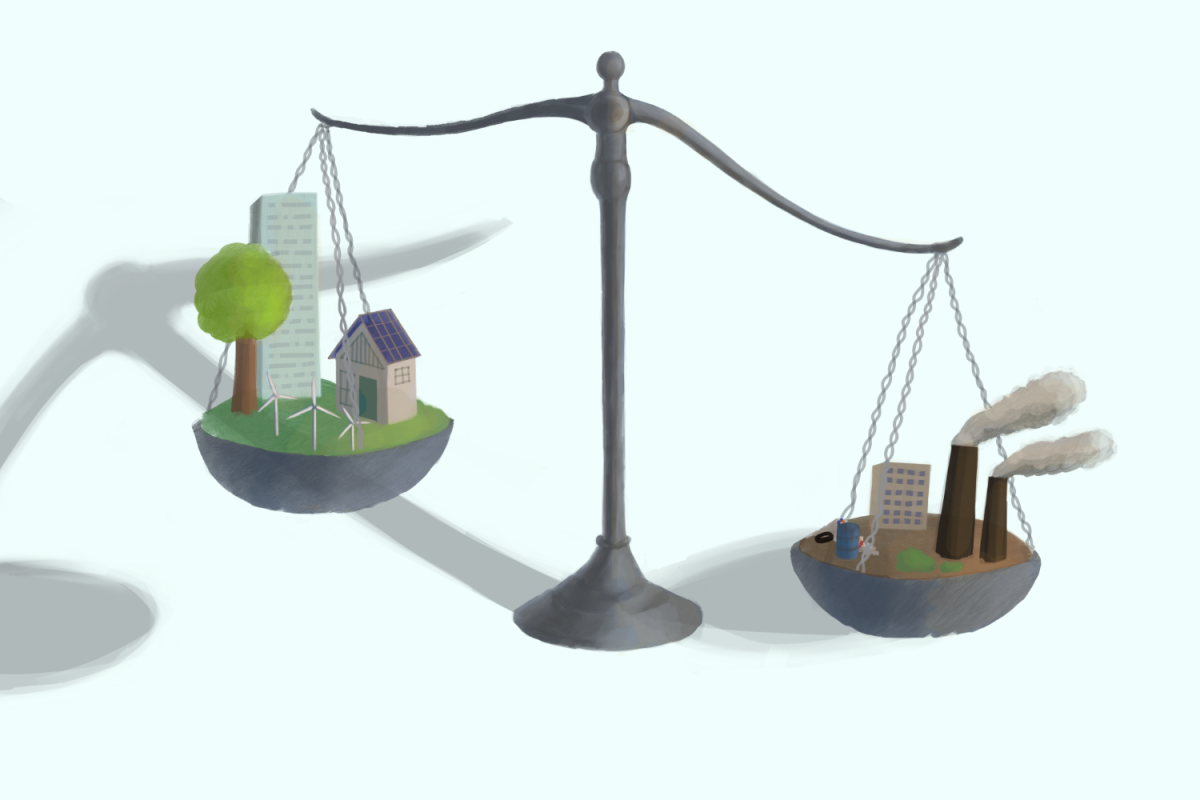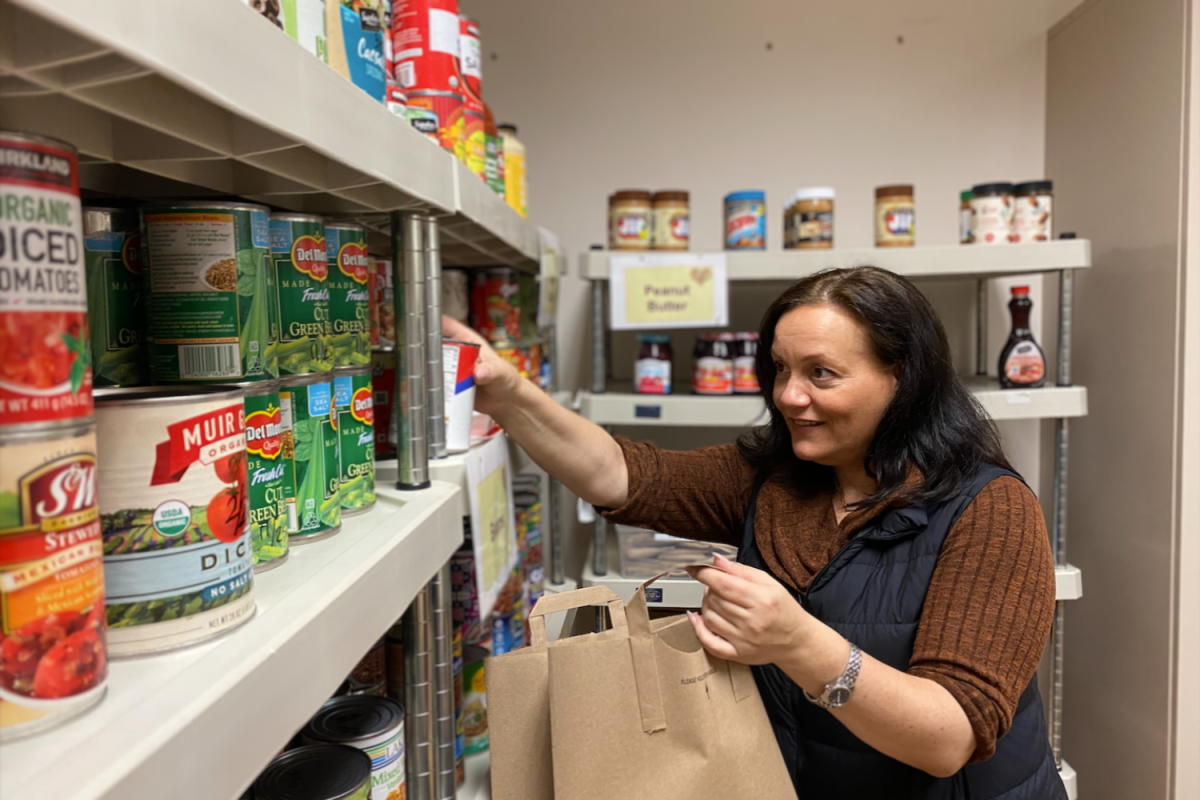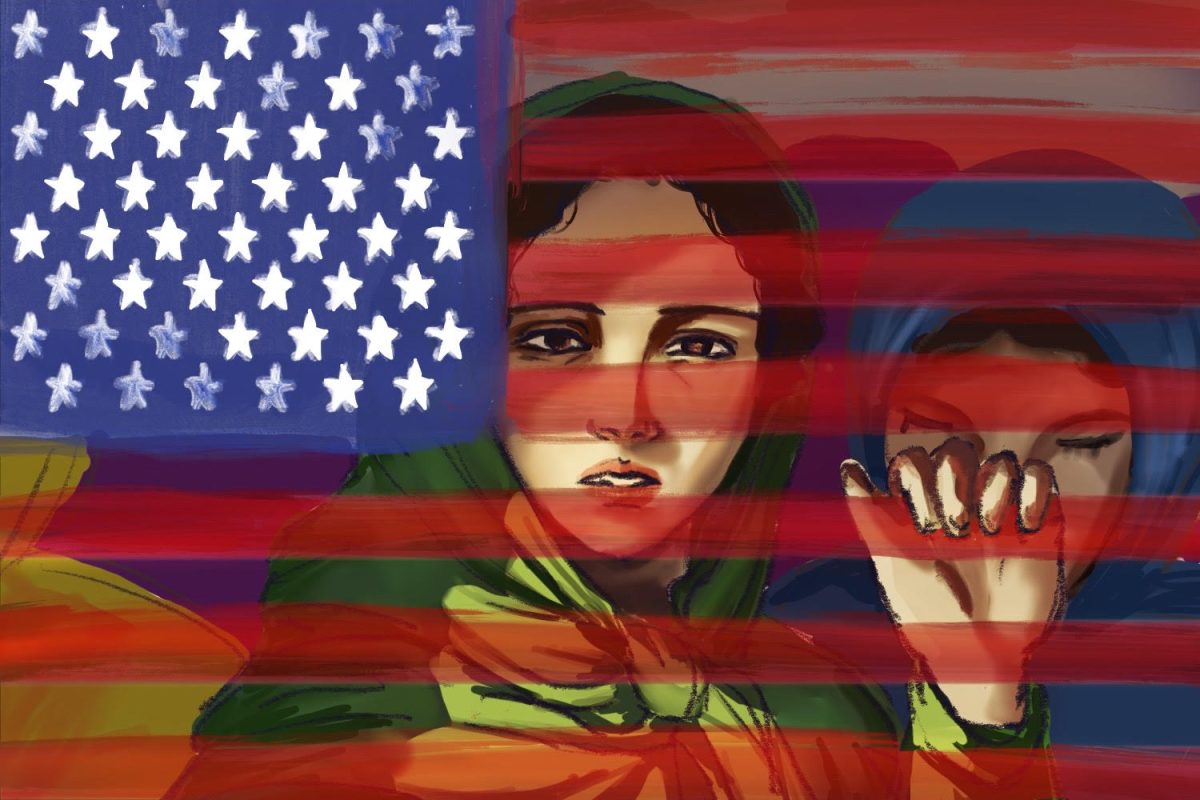Students have taken it upon themselves to live more sustainably: find alternatives to plastic straws, purchase reusable water bottles, thrift, and shop locally. This is all in an effort to fulfill the “reduce, reuse, and recycle” destiny that has been ingrained in us since childhood. Reducing your waste is excellent and may appear to help. However, the change it creates is entirely counteracted by the pollution created by corporations.
Yet, a majority continue to blame the destruction of our planet on consumer wastefulness. Blaming consumers instead of the exploitative systems responsible for damaging our planet continues with regards to fashion: one of the biggest polluters and human rights violators. The fashion industry is responsible for 10% of total global carbon emissions and 85% of all textiles going to landfills each year. Their wastefulness is directly correlated to their goal, as fast fashion corporations want to keep profit margins high regardless of any detrimental effects. For instance, fast fashion corporations use cheap fabrics made out of synthetic fibers like nylon and polyester, which take hundreds of years to biodegrade and are a significant source of microplastics. Furthermore, to maximize profits, laborers are paid as little as possible, which is why corporations that mass-produce goods outsource their factories to other countries with more lax labor and environmental protection.
Brands like Zara, Fashion Nova, and Kylie Cosmetics have sweatshops in Bangladesh. In Bangladesh, workers are often very young women who are either not compensated at all or paid below a living wage. Yet what many fail to realize is that fast fashion is a product of an exploitative system: it cannot be solved without tackling its root. The system that breeds this type of exploitation is capitalism, which is a for-profit system, placing the monetary gains of private corporations above the needs of people and the environment.
Capitalism depends on people’s inequity, as there must always be people to exploit to churn out profit for a few. The socioeconomic disenfranchisement in the U.S. further perpetuates the spiral of fast fashion. So, before saying, “Why can’t people just stop shopping from fast fashion? That would break the cycle,” it’s important to consider that there are institutional barriers that make it difficult for a broader range of people to participate in shopping sustainably. Shopping sustainably often means spending more money because the products are not mass-produced, and the workers are paid a living wage. This makes it difficult for those of lower socioeconomic status, who are also exploited under capitalism, to afford sustainable products because they do not have the means to do so.
Instead of guilting people to go vegan or spend ghastly amounts of money on sustainable items when they are not financially able to, direct that energy at the corporations and systems upholding exploitation. Our actions will not fix climate change, nor will it put much of a dent in it without first addressing the root of the problem: capitalism.






















